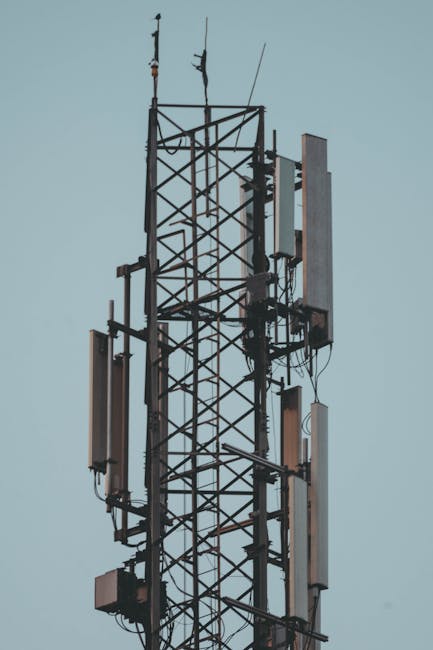Learning The “Secrets” of
 Your Guide to GPS Antennas: How They Work and Why You Need One
Your Guide to GPS Antennas: How They Work and Why You Need One
If you use GPS technology frequently, either for navigation or tracking purposes, then you’ve probably come across the term GPS antenna. But what exactly is a GPS antenna? How does it work, and why do you need one? In this article, we will delve into the world of GPS antennas, discussing their importance and functionality.
Understanding GPS Antennas
A GPS antenna is an essential component of any GPS system. It is responsible for receiving signals from satellites orbiting the Earth and transmitting those signals to the GPS receiver. Without a GPS antenna, your GPS system would not be able to accurately determine your location or provide you with accurate navigation directions.
How Does a GPS Antenna Work?
GPS antennas work based on the principle of receiving signals transmitted from GPS satellites. These satellites continuously send out signals containing information about their location and time. The GPS antenna’s main task is to capture these signals and feed them to the GPS receiver for interpretation.
GPS antennas are designed to operate within a specific frequency range, typically between 1.5 to 5 GHz. They are equipped with sensitive receivers that can pick up weak signals from satellites even in challenging environments, such as urban areas with tall buildings or densely forested regions.
Types of GPS Antennas
There are various types of GPS antennas available in the market, each with its own set of characteristics and applications. Here are some common types of GPS antennas:
1. Patch Antennas: These antennas are small and compact, making them suitable for use in portable GPS devices such as smartphones or vehicle navigation systems. Patch antennas are designed to receive signals from satellites located above the horizon, meaning they work best in open outdoor areas.
2. Active Antennas: Active GPS antennas, also known as amplified antennas, feature built-in amplifiers that boost weak GPS signals. They are ideal for use in vehicles or environments with weak GPS signal reception. Active antennas require a power source to operate, usually obtained from the GPS receiver or a separate power supply.
3. Helical Antennas: Helical antennas are known for their omnidirectional reception capabilities, meaning they can receive signals from GPS satellites in any direction. They are commonly used in applications where constant movement or rotating devices require continuous GPS signal reception, such as aerial drones or survey equipment.
Why Do You Need a GPS Antenna?
If you rely on GPS technology for navigation or tracking, having a GPS antenna is crucial. Here are some reasons why you need a GPS antenna:
1. Accurate Positioning: GPS antennas ensure that your GPS receiver receives strong and accurate signals from satellites, enabling precise positioning. Without a GPS antenna, your GPS system may struggle to acquire a signal, resulting in inaccurate location data.
2. Improved Signal Strength: GPS antennas, especially active antennas, help boost weak GPS signals. This is particularly useful in urban environments where tall buildings or obstacles can block or weaken GPS signals. By using an appropriate GPS antenna, you can enhance the signal strength and improve overall GPS performance.
3. Enhanced Connectivity: GPS antennas enable a stable and consistent connection between your GPS receiver and satellites. This means fewer signal dropouts or interruptions, ensuring reliable navigation and tracking capabilities.
Conclusion
In conclusion, GPS antennas play a vital role in the functionality and reliability of GPS systems. They receive signals from GPS satellites and transmit them to the GPS receiver, enabling accurate positioning and navigation. By understanding the different types of GPS antennas and their applications, you can choose the right antenna for your specific needs. So, whether you’re a frequent traveler, an outdoor enthusiast, or a logistics professional, investing in a quality GPS antenna can greatly enhance your GPS experience.
This post topic: Sports & Athletics